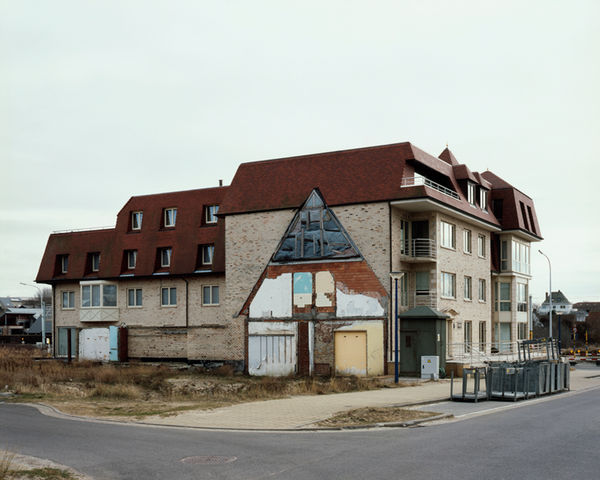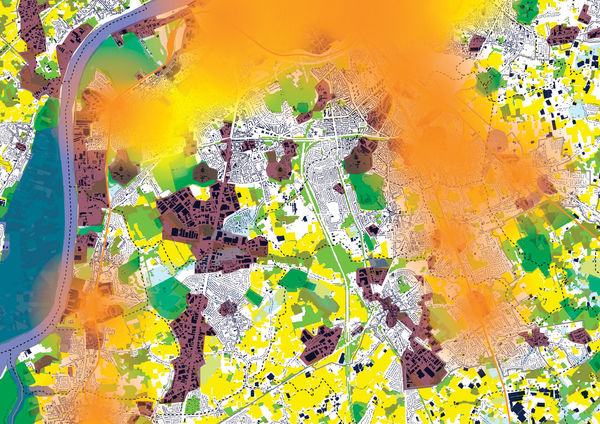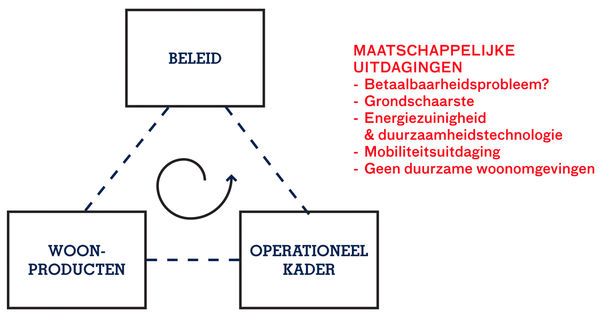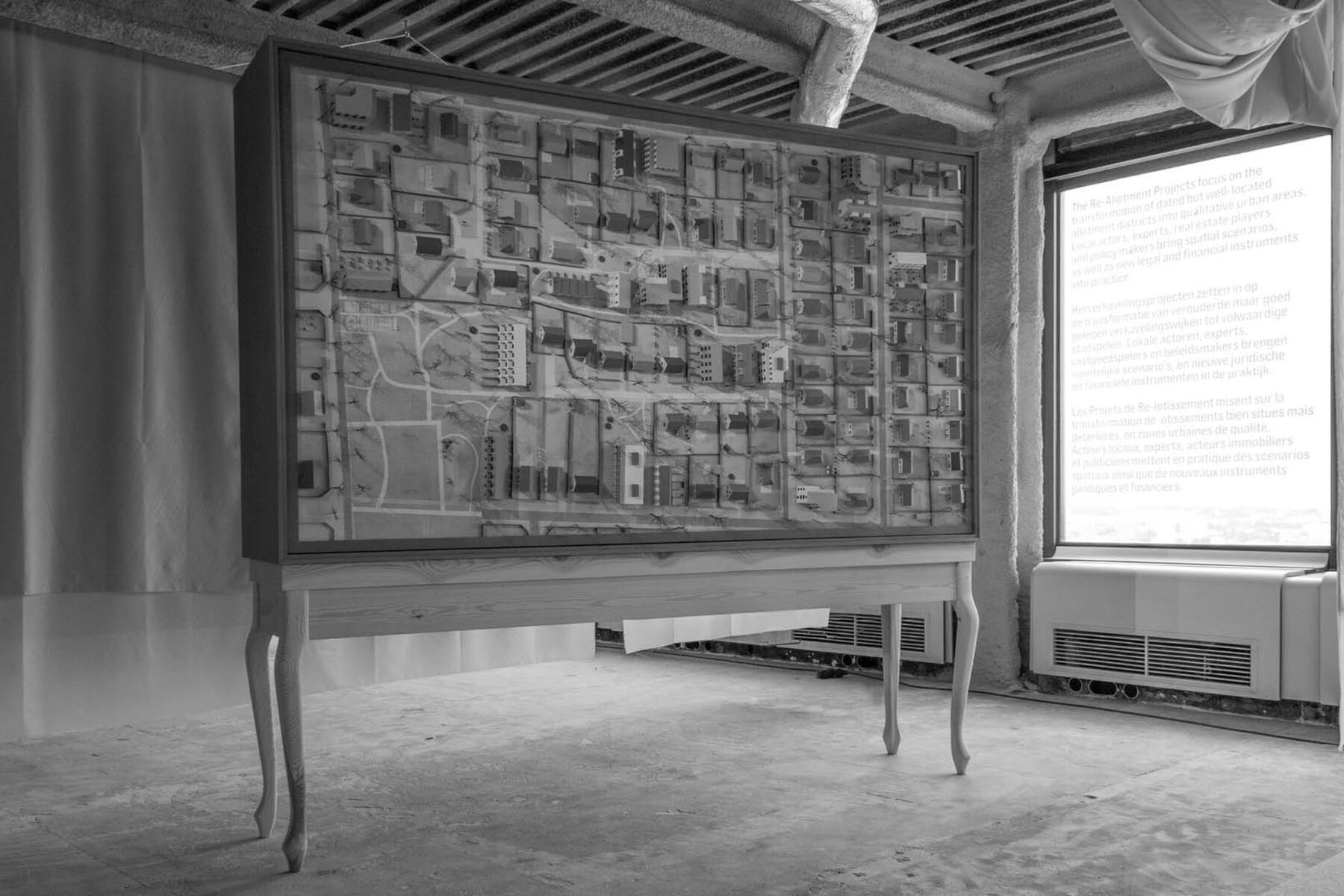The urbanisation of Flanders is advancing ever further, but the traditional model of the detached house on a private plot is unsustainable. The Towards visionary housing production study identifies bottlenecks and develops innovative spatial models that could provide direction for Flemish spatial policy.
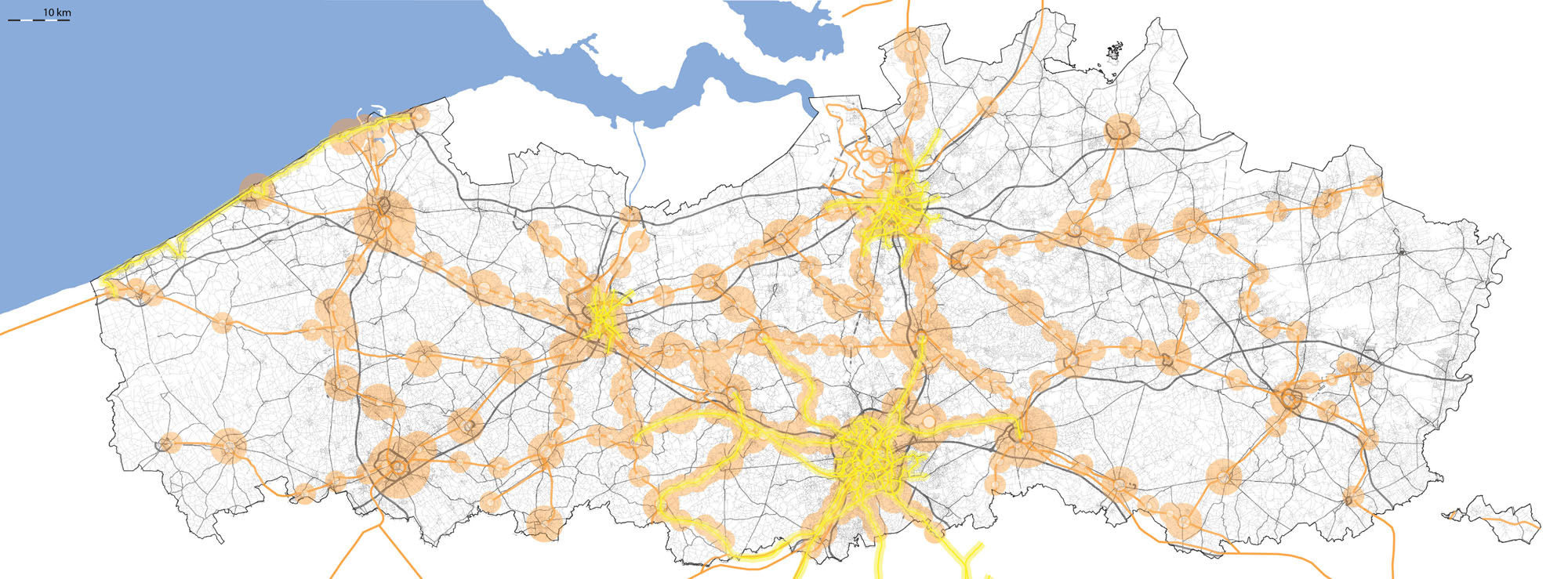
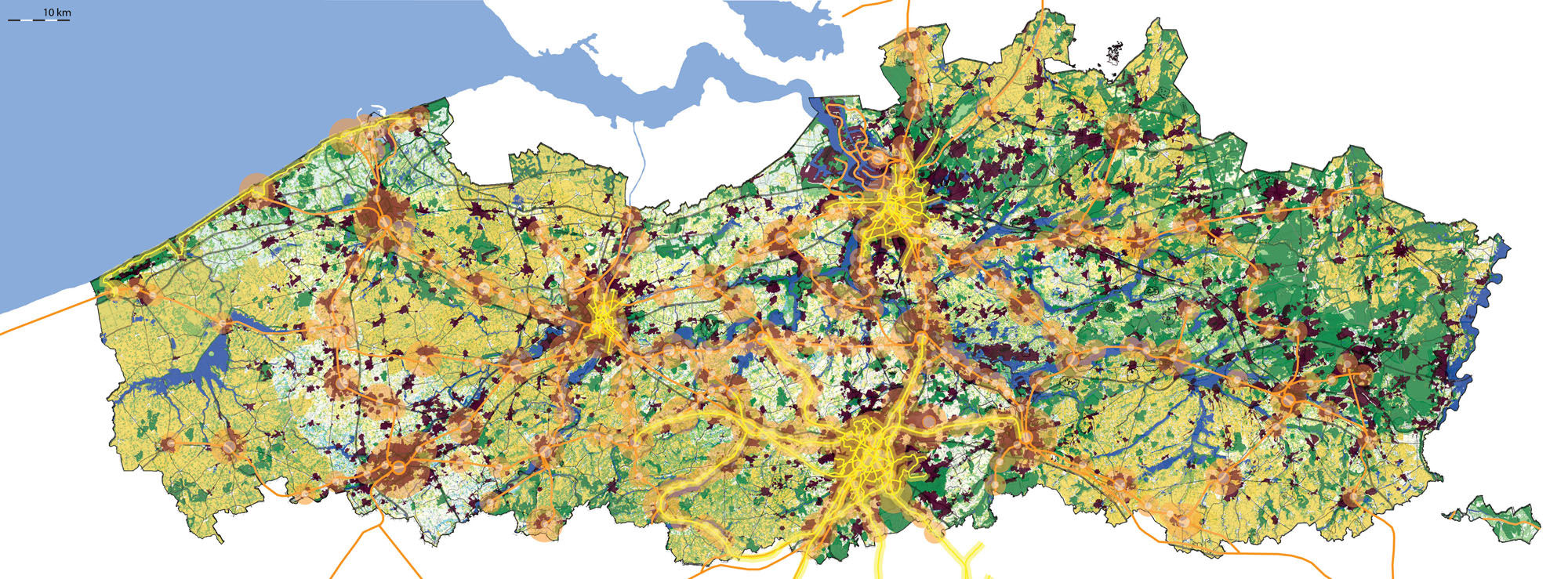
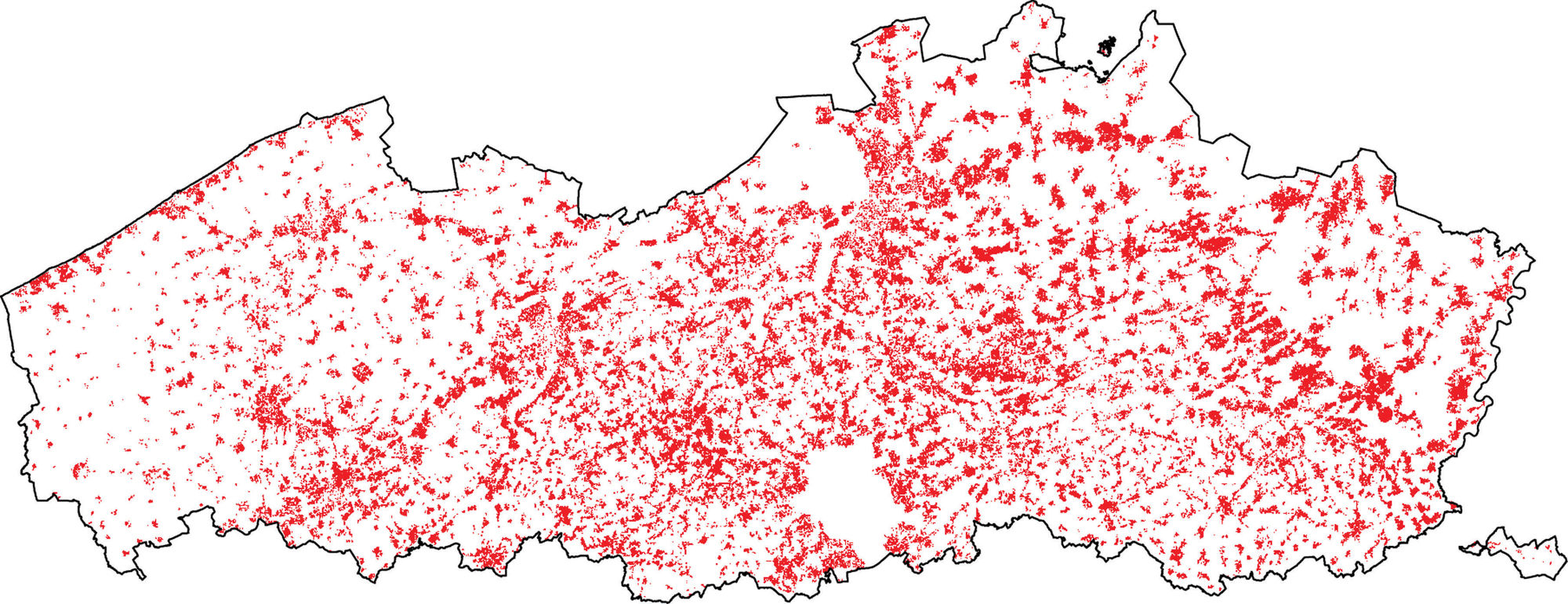
With its fiscal policy Flanders has been stimulating the idea of having your own, private detached home for decades. Linking this objective to that of evenly distributed growth has led to continuous and dispersed urbanisation in the Flemish territory. In the hope of reversing this trend, the Spatial Structure Plan for Flanders 1997 formulated the principle of qualitative densification. More than ten years ago, we noted that the trend reversal had not been achieved to the desired extent. Demographic studies predict an increase in the number of households by 330,000, or 13% between 2011 and 2030. If the existing trends cannot be reversed, urbanisation will also encroach on vacant plots and areas for residential expansion.
The Towards visionary housing production study outlines an innovation programme that aims to encourage a shift in the trend. The challenges and bottlenecks in Flemish housing policy are mapped out through interviews and workshops with the actors involved. Spatial challenges are formulated and can be translated into design studies at pilot sites, which could end up being implemented. Within the design studies new forms of housing, operational strategies and cooperation partnerships can be developed and tested, and used as a lever for a shift in the trend. Moreover, they can serve as inspiration for new policy plans being drafted, such as the Housing Policy Plan and the Spatial Policy Plan for Flanders.
The study is conducted in relation to the objective of the Flemish Government Architect to develop innovative spatial concepts that respond to growing demand and offer a valuable alternative to the traditional model of the individual detached home. The development of new spatial models must take the existing spatial and social challenges into account, such as the increasing scarcity of open space, and growing concern for the environment and climate change. The Towards visionary housing production study is a collaboration between Architecture Workroom, Pascal De Decker (professor at University College Ghent and WenK St.-Lucas and researcher connected to the Steunpunt Ruimte en Wonen (Flemish Policy Research Centre Housing and Space)), Michael Ryckewaert (researcher ASRO and also connected to the Steunpunt Ruimte en Wonen) and Dirk Somers (Bovenbouw architects).
The study constitutes the first step in an innovation process focusing on the renewal of housing in Flanders. This study is limited to zooming in on the challenges of housing and the definition of the opportunities and challenges related to achieving a shift in the trend in housing production.
We understand the term 'visionary housing production' as a sustainable housing production mechanism that succeeds in responding to social challenges. In specific terms this means that housing must be affordable, that the scarce space is used sparingly, that we live in an energy-efficient manner, use the car less and sustainable public transport more, and that the residential environments in which we live are of a good quality and are sustainable. Therefore, the challenge is to arrive at a comprehensive vision (and not to focus on one sub-problem or from a single perspective). It is also important that a study of housing challenges cannot be limited to the level of housing typology: housing production must be viewed as a whole, to which interventions are applied.
Research brought the following opportunities to light:
1. Policy for the rental market
Policy in Belgium has always followed the path of property and individual commissioning. Focusing on the rental market could be the answer to the problem of affordability.
2. An active land policy by the authorities
Due to the passive and unchanged attitude of the policy the authorities have never implemented an active land policy. This offers an important lever for creating a range of affordable and sustainable housing environments.
3. Larger housing production organisations
Professional actors that can provide a broad and affordable range of housing. Taking into account the typical characteristics of the Flemish housing market, making housing companies more professional could be viewed as an opportunity.
4. Collective types of housing
They are an exception in today's Flemish housing culture, which is characterised by individual home ownership. Nevertheless, forms of collective housing are becoming more popular. Two formulas stand out: building groups and co-housing.
5. Special formulas
There are a number of special formulas, such as Community Land Trust or Leasehold, which demonstrate how certain challenges, such as affordability, can be resolved through the creative use of legal and fiscal possibilities.
6. Local housing development company
The local housing development company is an integral solution that links policy, housing product and operational strategy to the local level as a solution to the selective urban exodus from cities.
Based on a selection of systems that are decisive for the qualities of the residential environment, a residential environment map of Flanders was compiled. The following systems were taken into account: the productive landscape (farming, green space and water system), mobility, employment and facilities, and affordability. This is not an exhaustive list; it can be supplemented with other systems, such as energy. Each of these systems can be considered as a challenge, and we need to examine how they could contribute to the quality of the residential environment.
The process and the final report Towards visionary housing production. Opportunities and challenges related to a shift in the trend in Flemish housing production formed the basis for the Collective Living Pilot Projects, organised by the Flemish Government Architect with the former Minister for Housing, Freya Vandenbossche, and for The Ambition of the Territory, the research project and exhibition in the Belgian Pavilion at the Venice Biennale in 2012 and in deSingel the same year.
